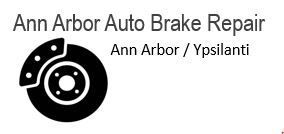Providing the Fastest Brake Repair Service
in the Ann Arbor area!
Common Errors When Changing Vehicle Brakes Too Quickly:
Understanding the Risks
Changing your vehicle’s brakes is a crucial maintenance task that can greatly affect driving safety. While performing this task, the need for speed can lead to significant errors. Rushing through the process may not only compromise the quality of the brake job but could also result in dangerous situations on the road. This article will explore common mistakes made when changing brakes too quickly and highlight the risks associated with overlooking important steps in this critical task.
1. Improper Brake Pad Installation
Error: One of the most common mistakes made in haste is improper installation of brake pads. This can include failing to ensure the pads are seated correctly or using the wrong type of pads for the vehicle.
Risk: Incorrectly installed brake pads can lead to uneven wear, reduced braking efficiency, and premature failure. In extreme cases, faulty installation can cause the pads to separate from the caliper, leading to a complete loss of braking power.
2. Neglecting Caliper Inspection
Error: Skipping the inspection of the brake caliper for damage, leaks, or wear can happen when mechanics rush through the brake replacement process.
Risk: A compromised caliper can lead to brake fluid leakage, reduced hydraulic pressure, and ultimately failure of the braking system. Additionally, if the caliper isn’t functioning correctly, it may not apply equal pressure to the brake pads, resulting in uneven wear and reduced stopping power.
3. Failing to Clean Components
Error: When changing brakes quickly, it’s easy to overlook the importance of cleaning the rotors, calipers, and other components to remove dust, grime, and debris.
Risk: Dirt and contaminants can create friction issues, leading to noise, vibration, or even brake fade. Failure to clean the surfaces properly may also decrease the lifespan of both the rotors and pads.
4. Inadequate Caliper Piston Compression
Error: Rushing to compress the caliper piston without properly assessing how far it needs to be pushed back can be a major error.
Risk: If the piston is not fully compressed, installing the new pads may cause the caliper to bind or not close correctly. This situation can lead to brake drag, which can overheat the pads and rotors, and severely reduce braking performance.
5. Overlooking Brake Fluid Levels
Error: When mechanics work quickly, they might forget to check the brake fluid levels or neglect to add fresh fluid if it’s low.
Risk: Low brake fluid levels can lead to a spongy brake pedal and a loss of braking responsiveness. If the fluid is contaminated, it can cause corrosion within the brake system, compromising overall effectiveness.
6. Ignoring Torque Specifications
Error: While replacing the brake caliper or wheel lug nuts, it’s common to skip using a torque wrench or to not follow the manufacturer’s torque specifications.
Risk: Over-tightening can cause damage to components, such as stripping threads or cracking the rotors. Conversely, under-tightening can lead to parts loosening during driving, causing a dangerous situation as the vehicle may pull to one side or produce excessive noise.
7. Failing to Test Brakes Post-Installation
Error: After completing the brake replacement, some might skip or rush through the necessary brake testing steps.
Risk: Neglecting to test the brakes means any potential issues remain undetected until you’re on the road. A failure to ensure proper braking performance can lead to a dangerous situation, putting yourself and others at risk.
8. Lack of Documentation
Error: Rushing can lead to insufficient documentation of the work performed, including parts replaced and any issues noted.
Risk: Without proper records, it may be difficult to diagnose future problems or to keep track of maintenance schedules. This oversight may result in missed intervals for brake pad or rotor replacement.
Conclusion: The Importance of Taking Your Time
While changing vehicle brakes may seem like a straightforward task, rushing through the process can lead to significant errors and safety risks. Each step is essential for ensuring your vehicle’s braking system functions properly and safely. By taking your time, following a detailed checklist, and double-checking every component, you can avoid these common mistakes and maintain the integrity of your vehicle’s braking system.
Safety should always be the top priority, both during brake replacement and when driving afterward. If you find yourself uncertain about any part of the process or if you’re short on time, it’s advisable to consult with a professional mechanic. Remember: a well-executed brake job is
not just about getting it done
quickly;
it’s about getting it done
right.
Give us a call or schedule a visit.
We have all the new pads, rotors and accessory parts your specific vehicle brake system is needing.
You never have to wait to get your brakes serviced or repaired at AnnArborAutoBrakeRepair.com
